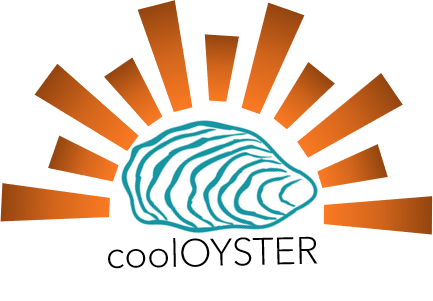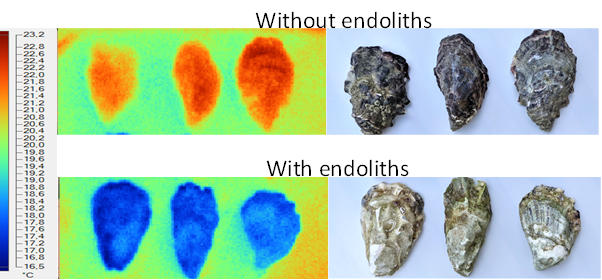coolOYSTER
People involved
Microbial symbiotic thermal mitigation against heatwaves
coolOYSTER aims at investigating how microbial symbiotic thermal mitigation can improve the resistance of oysters to heatwaves.
Heatwaves are amongst the deadliest natural disasters, causing human mortality as well as degradation of ecosystems, with irreversible consequences for the ecological and societal benefits they provide. With climate change, heatwaves are becoming more frequent, stronger, and longer lasting. Understanding their consequences is a societal priority.
Biological mitigations of natural disasters are still poorly integrated in predicting ecological change. Yet, to fully grasp the effects of extreme temperature events at organismal scales, it is critical to understand how small-scale local interactions of distinct components of ecosystems may modulate the large-scale impact of climate.
The objectives of coolOYSTER are to:
- Characterise incidence and composition of the symbiotic endolithic communities in wild and cultured oyster populations in Normandy
- Identify the key environmental factors controlling the distribution of endolithic communities - using niche modelling
- Quantify the effects of endolithic microbes on oyster fitness – using Dynamic Energy Budget modelling, DEB
- Scale up such effects to the ecosystem functioning and services (food provisioning) provided by wild and cultured oyster populations
- Project the ecological and socio-economic consequences of endolithic microbes in oysters – using ecological niche modelling and IPCC climate scenarios.
Acting as partner organisation from the extra-academic sector, Satmar, the oldest and one of the most productive mollusc hatcheries in France, will be have a pivotal role in the project.
Funding:
The WINNINGNormandy Fellowship Program (European Union’s Horizon 2020 research and innovation programme under the Marie Skłodowska - Curie grant agreement N° 101034329)
Project coordinator:
Gerardo ZARDI (-> october 2022)
- SATMAR (https://www.satmar.fr/)
- SMEL (Synergie Mer & Littoral ; https://www.smel.fr/)


